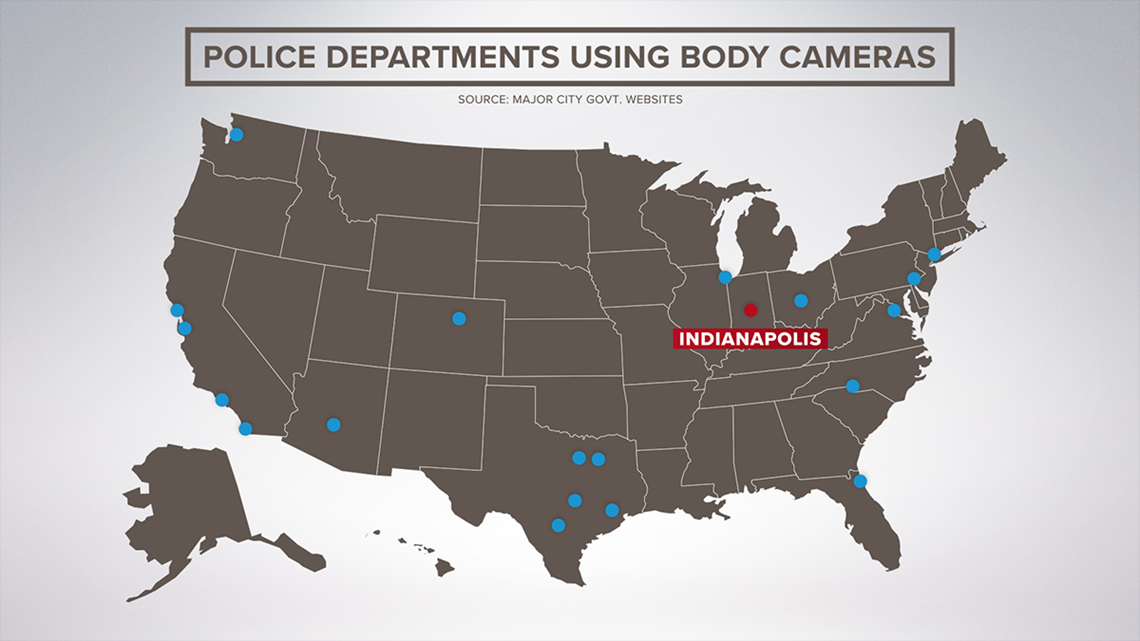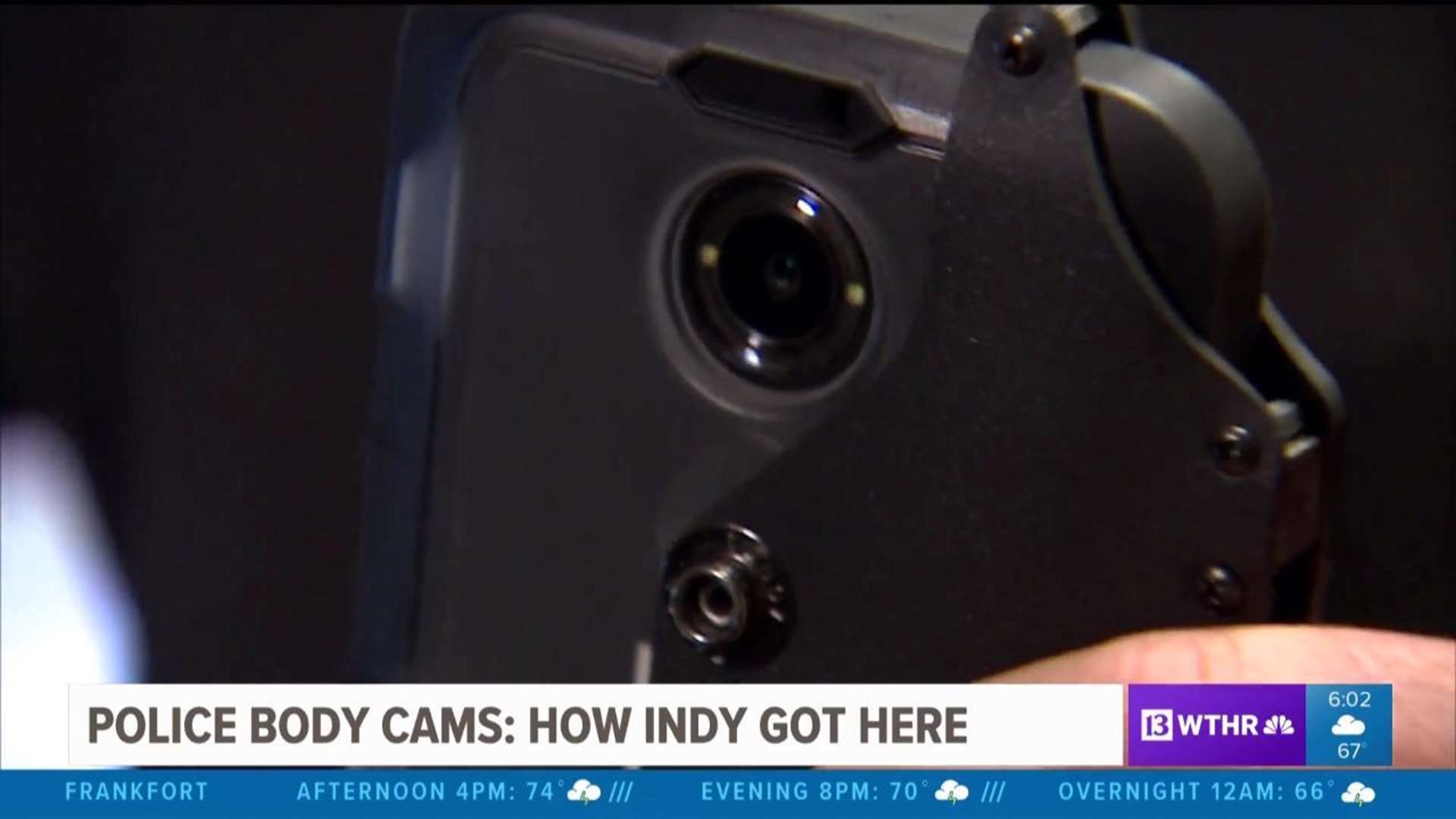INDIANAPOLIS (WTHR) —Police body cameras have become a critical component to understanding what happens when an officer interacts with citizens. They help police investigate and supporters tout improved transparency with the public.
13News has learned Indianapolis is the only city out of the nation’s 20 largest not to have them.


This week, IMPD said the department was on track to roll out its body camera program this year and that their officers want them.
Community members like Antonio Lipscomb wonder why it took so long.
“It’s frustrating,” said Lipscomb, associate oastor of Greater Anointing Fellowship Church. “We’re like ‘why are you so passionate about certain things … but we’re not passionate about protecting human lives?’”
After two police action shootings in 24 hours this month, some on social media asked where the body cameras were.
The city’s first pilot program began in 2014.
13News reached out to the Mayor’s Office, City-County Council, IMPD and law enforcement experts to find out why it’s taken nearly six years.
“While the first pilot program occurred prior to the current mayoral administration and police leadership, prohibitive costs, outdated city technology infrastructure, a small sample size, and lack of community buy-in were cited as reasons the department did not pursue a permanent program in 2014,” said IMPD spokesperson Aliya Wishner. “That’s why, in the years since, the city has invested millions of dollars in upgrading public safety technology infrastructure, and initiated a second, larger IMPD pilot of body-worn camera technology.”
A body camera program is said to cost between $2 million and $3 million a year for the equipment, video storage and infrastructure setup and maintenance.
The city must also hire employees to manage it.
Dr. Jeremy Carter is the director of Research and Criminal Justice and Public Safety at IUPUI’s O’Neill School of Public and Environmental Affairs. He said it’s about priorities.
“You had other initiatives around the city asking for funds at around the same time," said Carter, including a community push for more police officers.
Carter said, for several years, IMPD was understaffed.
Mayor Joe Hogsett pledged to add boots on the ground during his first campaign.
Since 2016, Wishner said IMPD has hired 436 new officers.
During that time, Wishner said the city also did a feasibility study on body cameras, surveyed the public and held a series of community meetings.
“Community feedback they collected indicates that residents support the implementation of a body worn camera program on the department and feel that the benefits of a program outweigh the costs,” said Wishner.
A more formal pilot program began in 2019. Afterward, Hogsett proposed and the council approved $1.2 million to officially launch a body camera program in 2020.
Is state law a hurdle?
Carter, who partnered with the city in its feasibility study, said another piece of the financial burden results from a 2016 state law, requiring police departments in Indiana to save all body camera footage for at least 190 days.
Carter said the national recommendation is 90 days.
“When you look at the size of IMPD, you’re talking about a police department that takes over a million calls for service a year,” said Carter. “That’s a lot of video and audio storage.”
Police in Clarksville, Indiana suspended their body camera program after the law took effect. They have since restarted it.
Carter said there’s also a benefit to learning from the successes and failures of body camera programs in other cities.
Today, Carter said the technology has improved, many bugs have been worked out, and the equipment isn’t as expensive.
"A lot of these agencies nationwide didn't do their homework, jumped right into body cameras and either those programs folded or they are far inferior to what they probably would rather have, had they taken their time," said Carter. "I have no doubt in my mind IMPD is in a very good place to do this right now because they did wait.”

